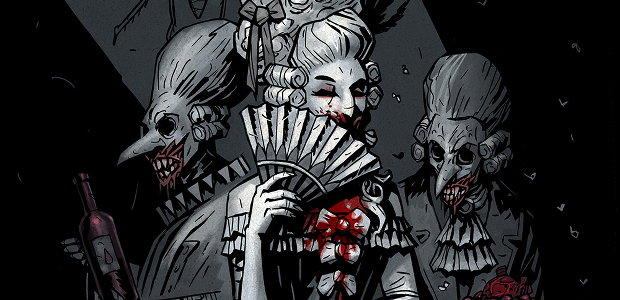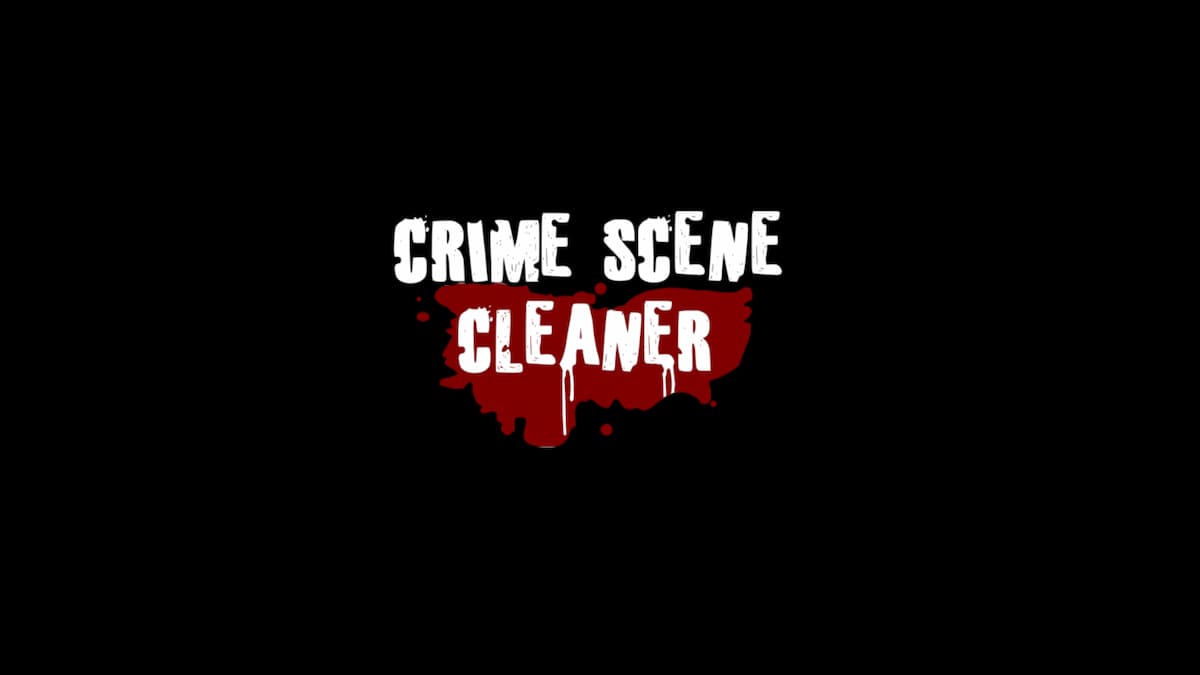Darkest Dungeon: The Crimson Court on PC
Darkest Dungeon is one of the most beloved success stories in video game Kickstarter history, and it’s absolutely no surprise that developer Red Hook would eventually release additional content for the brutally unforgiving permadeath turn-based RPG. That time is finally here, and The Crimson Court has just been released as the first official expansion for the game. And it’s a creepy one.
The Crimson Court introduces a brand new area called the Courtyard, and as the expansion name and key art would suggest, it’s themed around the imagery of blood. The new enemy types have impeccable design, ranging from more ‘normal’-looking ones like oversized mosquitoes to some seriously freaky ones like humanoid mosquito abominations, complete with terrifying feelers looking to suck some blood out of your heroes. They’ve all got Bleed attacks, along with a repertoire of moves that inflict Stress damage (everyone’s favorite), so just the new enemies alone are enough to up the already challenging difficulty level that Darkest Dungeon is known for. The expansion’s new hero class, the Flagellant, also fits perfectly with this bloody theme. His attacks and healing moves are all Bleed-based, so there’s a sort of risk-reward system involved when you try to recover health with him, not unlike the Occultist from the vanilla game.
Lastly, the brand new Districts system also gets added into the game with the Crimson Court expansion. This system essentially allows you to spend resources on new buildings and structures to make your dungeon crawls easier. You’ve got buildings that grant you a bit of free food each week, as well as a bank that gives you a small percentage of gold interest. They help alleviate some of the game’s difficulty, and you’ll definitely need them as you trudge through the bloody Courtyard.
The best part about all of this is that you can choose which parts of the expansion you want to be active in your game. If you just want the new Courtyard area and the Flagellant hero while keeping a purer gameplay experience without the aid of the new Districts, you can choose to disable it from the main menu. It’s a great way of implementing the DLC, and it ensures that every player gets to experience the game the way they want it.

After activating the Courtyard, signs of the new threat will start to emerge in the Hamlet after a few weeks. The signs feel relatively insignificant at first, with the game letting you know that stress relief is slightly less effective during one week. Other times, you might see some mosquitoes flying around the Hamlet’s tree. Before too long, you’ll see a new dungeon quest on your menu telling you to venture into the new Courtyard and burn down three thronging hives to eliminate the threats in the Hamlet. It’s a trap.
The first Courtyard mission ended up being one of the most difficult dungeon crawls I’d ever experienced in the entire game, and that’s in part due to the way the game eggs you on to go try it out, while also deliberately keeping the dungeon description vague and slightly misleading at the same time. Boss levels in vanilla Darkest Dungeon typically warn you about the major threat ahead before you actually embark on the mission, giving you time to gear up and prepare. Given how reliant on RNG the game’s turn-based combat is, this is a fair compromise. No matter how prepared you think you are, there’s always a chance that a boss fight could go horribly wrong because the RNG gods weren’t on your side that time around. “How quickly the tide turns,” as the announcer would say.
In turn, Crimson Court’s first mission feels a little unfair. With a seemingly innocuous goal like “Burn three thronging hives,” and the fact that the mission pops up relatively early on in the game, there’s absolutely no indication that you have to fight an incredibly tough boss to beat it. The dungeon layout for this mission is fixed and, in a cruel design decision made by the devs, your final thronging hive is locked behind aforementioned boss, so there’s no getting around it.
The situation is made even more dire when you find out that the Courtyard enemies start appearing even in regular dungeons outside of the new area. These Bleed-focused enemies honestly wouldn’t be so bad if it weren’t for the harsh and newly introduced mechanic, the Crimson Curse. Every Courtyard enemy has an attack with the chance of inflicting the Crimson Curse on your heroes. Once they’re infected, their stats go down, and they become less resistant to Bleed, Blight, and Stun. What’s worse is that if they aren’t consistently fed with a new item ominously called The Blood, they eventually go insane and unplayable. So yeah, the Crimson Curse is very, very bad news.
Also, don’t try to cure your heroes with Holy Water. I found that out the hard way.
Without a reliable way to cure the Crimson Curse, you have to start keeping track of how much Blood you’re feeding your heroes. The Blood is a random drop that you can get from all dungeons, and it’s important to manage this new resource properly. Starve your heroes, and they’ll go insane. Give them too much, and, well, they’ll go insane too. There’s one more new twist introduced with the Crimson Curse; if you put a Cursed hero in the same building as a clean one (whether it’s the Tavern or the Sanitarium), there’s a chance that your clean hero will get infected with the Crimson Curse as well.

All of these new mechanics add a brand new layer of depth and strategy to Darkest Dungeon. Having to micro-manage your heroes even in the Hamlet makes the game even more challenging, and if you’re not careful, you could end up with a full roster of Cursed characters in your Barracks. The only problem with this mechanic is that The Blood is a random drop from dungeons and enemies, and there’s no reliable way of farming them. This means that if you made the mistake of venturing into the Courtyard too early, you could very well end up screwing yourself over from the lack of Blood, or overflow of Cursed heroes.
The Crimson Court’s new mechanics are fantastic additions to Darkest Dungeon, and they’ve definitely helped to keep things fresh with all these new twists and developments. While I do love how seamlessly the new content has been integrated into the game, it might need a bit of balancing before it becomes truly fun and engaging to play. As it stands, The Crimson Court feels too much like an unfair beginner’s trap which continues to punish players with devastating consequences that you can’t plan for. You’ll look on in helpless despair as your heroes fall to the Curse one by one, and you’ll eventually have to make the difficult choice of giving your last Blood vial to one favorite hero and leaving the other to die. You’ll also probably have to reset your game multiple times before you get lucky with your RNG attacks and resource gathering. But then again, I suppose that’s the name of the game.
Score: 3.5/5 – Fair
Pros
| Cons
|













Updated: Apr 12, 2019 01:08 pm